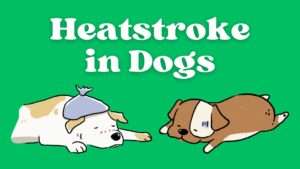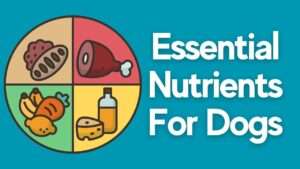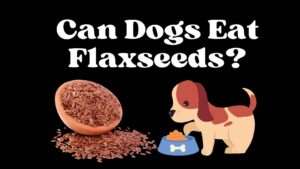Dogs are not just pets; they’re part of the family. And just like any family member, their nutrition matters. One crucial aspect of their diet is carbohydrates. But what role do carbohydrates play in a dog’s nutrition? Are they beneficial or harmful? Let’s delve into the world of carbohydrates for dogs, uncovering myths, facts, and best practices along the way.
Contents Overview
Understanding Carbohydrates
Carbohydrates are one of the three macronutrients, alongside proteins and fats. They serve as a primary energy source, providing fuel for bodily functions and activities. Carbohydrates are made up of sugars, starches, and fiber, each with its own role in a dog’s diet.
Carbohydrates Foods for Dogs
Let’s briefly explain each carbohydrate-rich food for dogs:
- Whole Grains:
- Brown rice: A nutritious whole grain that provides dogs with complex carbohydrates, fiber, and essential nutrients like manganese and selenium.
- Oats (cooked): Rich in soluble fiber, oats support digestive health and can help regulate blood sugar levels in dogs.
- Barley: Another whole grain option that offers fiber, vitamins, and minerals, including selenium and copper.
- Quinoa: A complete protein source, quinoa is gluten-free and packed with fiber, iron, and magnesium, making it a nutritious option for dogs with food sensitivities.
- Vegetables:
- Sweet potatoes (cooked): High in fiber, vitamins A and C, and antioxidants, sweet potatoes provide dogs with energy and support immune function.
- Pumpkin (cooked or canned, unsweetened): Rich in fiber and beta-carotene, pumpkin aids in digestion and can help alleviate gastrointestinal issues like diarrhea or constipation.
- Carrots (cooked or raw): Crunchy and low in calories, carrots are a great source of beta-carotene, fiber, and vitamin K1, promoting dental health and vision.
- Green beans (cooked): Low in calories and high in fiber, green beans are a nutritious addition to a dog’s diet, offering vitamins A, C, and K, as well as manganese.
- Peas (cooked): Packed with protein, fiber, and vitamins, peas support muscle health, digestion, and overall vitality.
- Spinach (cooked in small amounts): Rich in iron, vitamins A, C, and K, spinach provides antioxidants and supports bone health, but should be fed in moderation due to its oxalic acid content.
- Broccoli (cooked in small amounts): Contains fiber, vitamins C and K, and antioxidants, broccoli offers numerous health benefits but should be given sparingly due to its potential to cause digestive issues in some dogs.
- Brussels sprouts (cooked in small amounts): Similar to broccoli, Brussels sprouts provide fiber, vitamins, and antioxidants but should be fed in moderation due to their potential to cause gas.
- Fruits:
- Apples (remove seeds and core): Low in calories and high in fiber, apples are a crunchy treat that supports dental health and provides vitamins A and C.
- Blueberries: Packed with antioxidants and phytochemicals, blueberries offer numerous health benefits, including support for cognitive function and immune health.
- Strawberries: Rich in fiber, vitamins, and antioxidants, strawberries are a tasty, low-calorie snack that supports heart health and boosts the immune system.
- Watermelon (remove seeds and rind): Hydrating and low in calories, watermelon provides vitamins A and C, as well as lycopene, which promotes heart health and may reduce the risk of certain cancers.
- Cantaloupe (remove seeds and rind): Another hydrating fruit, cantaloupe is rich in vitamins A and C, as well as beta-carotene, supporting immune function and skin health.
- Bananas (in moderation due to high sugar content): A natural source of potassium, vitamins B6 and C, and fiber, bananas offer energy and support muscle function but should be given in moderation due to their high sugar content.
- Legumes:
- Lentils (cooked): High in protein, fiber, and complex carbohydrates, lentils support muscle health, digestion, and energy production.
- Chickpeas (cooked): Also known as garbanzo beans, chickpeas provide protein, fiber, and essential nutrients like iron and zinc, supporting overall health and vitality.
- Black beans (cooked): Rich in protein, fiber, and antioxidants, black beans promote heart health, digestion, and immune function.
- Kidney beans (cooked): Packed with protein, fiber, and vitamins, kidney beans support muscle health, digestion, and overall well-being.
- Dairy:
- Plain yogurt (without added sugars or artificial sweeteners): A good source of calcium, protein, and probiotics, plain yogurt supports digestive health and strengthens bones and teeth.
- Cottage cheese (in moderation due to lactose content): High in protein and calcium, cottage cheese provides dogs with essential nutrients but should be given in moderation, especially to dogs with lactose intolerance.
- Commercial Dog Foods:
- High-quality dog foods often include carbohydrates like brown rice, sweet potatoes, and peas as primary ingredients. These foods are formulated to provide dogs with a balanced diet and essential nutrients.
- Homemade Treats:
- Homemade dog treats can be made using whole grain flour (such as whole wheat or oat flour), sweet potatoes, pumpkin, and fruits like apples or blueberries. These treats offer a healthy alternative to store-bought options and allow you to control the ingredients and portion sizes.
By incorporating a variety of carbohydrate-rich foods into your dog’s diet, you can ensure they receive the essential nutrients they need to thrive. Remember to introduce new foods gradually and monitor your dog for any signs of digestive upset or allergies. Consult with your veterinarian to determine the best carbohydrate sources and portion sizes for your dog’s individual needs.
Myths vs. Facts : Carbohydrates for Dogs
Let’s delve into some common myths about carbohydrates for dogs and separate fact from fiction:
Myth: Carbohydrates are unnecessary for dogs.
- Fact: While dogs are classified as carnivores, they are actually omnivores, meaning they can derive nutrition from both plant and animal sources. Carbohydrates serve as a valuable energy source for dogs, providing fuel for bodily functions and activities. While dogs can survive on a diet devoid of carbohydrates, they can thrive with the inclusion of appropriate carbohydrate sources in their diet.
Myth: Carbohydrates cause weight gain in dogs.
- Fact: Like any nutrient, excessive consumption of carbohydrates can contribute to weight gain in dogs. However, when incorporated into a balanced diet with appropriate portion sizes, carbohydrates can provide energy without leading to obesity. In fact, carbohydrates can help dogs feel full and satisfied, potentially preventing overeating and aiding in weight management.
Myth: Dogs should follow a grain-free diet.
- Fact: Grain-free diets gained popularity in recent years, with the belief that grains are harmful to dogs. However, scientific evidence does not support the notion that grains are inherently bad for dogs. In fact, grains like brown rice, oats, and barley can provide valuable nutrients and fiber. Some grain-free diets have been linked to an increased risk of dilated cardiomyopathy (DCM), a serious heart condition, especially in breeds predisposed to the disease. Therefore, it’s essential to choose a diet based on nutritional adequacy rather than simply avoiding grains.
Myth: Carbohydrates are all the same.
- Fact: Carbohydrates vary in complexity and digestibility. Simple carbohydrates, such as sugars found in fruits, provide quick energy bursts. In contrast, complex carbohydrates, like whole grains and vegetables, offer sustained energy and essential nutrients. Additionally, carbohydrates vary in fiber content, with some sources providing more fiber than others. It’s important to choose carbohydrate sources that align with your dog’s nutritional needs and digestive health.
Myth: Dogs cannot digest carbohydrates.
- Fact: While dogs have a shorter digestive tract than humans, they possess enzymes like amylase that enable them to digest and utilize carbohydrates effectively. While they may not digest carbohydrates as efficiently as herbivores, dogs can still derive energy and nutrients from carbohydrate-rich foods. However, the digestibility of carbohydrates can vary depending on factors like the type of carbohydrate and how it’s processed.
Myth: Carbohydrates are the cause of allergies in dogs.
- Fact: While some dogs may have food allergies or sensitivities to specific ingredients, carbohydrates are not the sole culprit. In fact, protein sources like beef, chicken, and dairy are more commonly associated with food allergies in dogs. Additionally, the way ingredients are processed and the presence of additives or contaminants can also contribute to allergic reactions. Identifying and eliminating the specific allergen through a controlled elimination diet is key to managing food allergies in dogs.
Benefits of Carbohydrates for Dogs
Carbohydrates offer several benefits for dogs, supporting their overall health and well-being:
- Energy Source:
- Carbohydrates serve as a primary energy source for dogs, providing the fuel needed for daily activities, exercise, and bodily functions.
- Complex carbohydrates, such as whole grains and vegetables, supply sustained energy, helping to maintain consistent energy levels throughout the day.
- Digestive Health:
- Fiber-rich carbohydrates support digestive health by promoting regular bowel movements and aiding in the prevention of constipation.
- Fiber also helps to regulate blood sugar levels and can contribute to a feeling of fullness, which may aid in weight management.
- Nutrient Diversity:
- Carbohydrates from fruits and vegetables offer a wide range of vitamins, minerals, and antioxidants essential for overall health and immune function.
- Different carbohydrate sources provide a variety of nutrients, ensuring dogs receive a diverse array of essential vitamins and minerals in their diet.
- Weight Management:
- When included in appropriate portions, carbohydrates can help dogs feel full and satisfied, reducing the likelihood of overeating and supporting weight management.
- High-fiber carbohydrates can promote satiety and reduce the risk of obesity by providing a sense of fullness without excess calories.
- Gut Health:
- Certain carbohydrates, such as soluble fiber found in oats and sweet potatoes, act as prebiotics, promoting the growth of beneficial bacteria in the gut.
- A healthy balance of gut bacteria is essential for digestion, nutrient absorption, and immune function, contributing to overall well-being.
- Muscle Function:
- Carbohydrates are important for muscle function and recovery, especially in active dogs or those engaging in regular exercise.
- Carbohydrates provide the energy needed for muscle contractions during exercise and support muscle repair and recovery post-workout.
- Blood Sugar Regulation:
- Complex carbohydrates are digested more slowly than simple sugars, resulting in a gradual release of glucose into the bloodstream.
- This gradual release helps to stabilize blood sugar levels, preventing spikes and crashes that can occur with high-sugar foods.
- Dental Health:
- Crunchy carbohydrate-rich foods, like carrots and apples, can help promote dental health by aiding in the mechanical removal of plaque and tartar buildup.
- Chewing on firm fruits and vegetables can also stimulate saliva production, which helps to wash away food particles and bacteria from the teeth and gums.
Best Practices
Implementing best practices when it comes to feeding carbohydrates to dogs ensures they receive the optimal nutrition for their health and well-being. Here are some key guidelines to follow:
- Quality Over Quantity:
- Choose high-quality carbohydrate sources that are nutritious and minimally processed. Look for whole grains, fruits, and vegetables without added sugars, artificial flavors, or preservatives.
- Opt for carbohydrates with high fiber content, as fiber is essential for digestive health and can aid in weight management by promoting satiety.
- Portion Control:
- Balance carbohydrates with proteins and fats to create a well-rounded diet for your dog. Consult with a veterinarian to determine the appropriate portion sizes based on your dog’s breed, size, age, and activity level.
- Avoid overfeeding carbohydrates, as excessive consumption can lead to weight gain and potential health issues.
- Variety is Key:
- Incorporate a variety of carbohydrate sources into your dog’s diet to ensure they receive a diverse range of nutrients. Rotate between different grains, fruits, and vegetables to provide a balanced nutritional profile.
- Offering a variety of carbohydrate-rich foods can also help prevent food allergies and sensitivities from developing.
- Avoid Artificial Additives:
- Steer clear of dog foods and treats that contain artificial flavors, colors, and preservatives. Choose natural, wholesome ingredients that provide nutritional benefits without unnecessary additives.
- Read ingredient labels carefully and prioritize products with recognizable, whole-food ingredients.
- Monitor Health:
- Regularly monitor your dog’s weight, energy levels, coat condition, and overall health. Keep track of any changes in appetite, digestion, or behavior that may indicate a need for dietary adjustments.
- Schedule regular check-ups with your veterinarian to assess your dog’s nutritional status and address any concerns or questions related to their diet.
- Be mindful of any food intolerances or allergies your dog may have and avoid feeding them foods that trigger adverse reactions.
- Hydration:
- Ensure your dog has access to clean, fresh water at all times, especially when feeding carbohydrate-rich foods like dry kibble or treats.
- Proper hydration is essential for digestion, nutrient absorption, and overall health, so encourage your dog to drink water throughout the day.
- Exercise:
- Pair a balanced diet with regular exercise to help maintain your dog’s overall health and prevent obesity.
- Engage in physical activities like walking, running, playing fetch, or swimming to keep your dog active and mentally stimulated.
Considerations and Precautions
While carbohydrates can be beneficial for dogs when included as part of a balanced diet, there are several considerations and precautions to keep in mind to ensure your pet’s health and well-being:
- Individual Dietary Needs:
- Dogs have different nutritional requirements based on factors such as age, breed, size, activity level, and health status. Consult with your veterinarian to determine the appropriate type and amount of carbohydrates for your dog’s specific needs.
- Food Allergies and Sensitivities:
- Some dogs may have allergies or sensitivities to certain carbohydrates, such as grains or specific fruits and vegetables. Monitor your dog for signs of food intolerance, such as itching, gastrointestinal upset, or skin issues, and adjust their diet accordingly.
- Weight Management:
- While carbohydrates can provide energy, excessive consumption can contribute to weight gain, especially in less active dogs or those prone to obesity. Ensure proper portion control and monitor your dog’s weight to prevent overfeeding and maintain a healthy body condition.
- Digestive Upset:
- Introduce new carbohydrate-rich foods gradually to prevent digestive upset, such as diarrhea or vomiting. Sudden dietary changes can disrupt the balance of gut bacteria and lead to gastrointestinal issues. Monitor your dog’s stool consistency and digestive health when introducing new foods.
- High-Sugar Foods:
- Some carbohydrate sources, such as fruits like grapes, raisins, and cherries, can be toxic to dogs and should be avoided. Additionally, limit the intake of high-sugar fruits like bananas or watermelon, especially for dogs with diabetes or weight management concerns.
- Avoid Toxic Ingredients:
- Certain carbohydrates, such as those containing xylitol, an artificial sweetener commonly found in sugar-free products, can be toxic to dogs and should be avoided. Check ingredient labels carefully to ensure products are safe for canine consumption.
- Dental Health:
- While crunchy fruits and vegetables can help promote dental health by reducing plaque and tartar buildup, starchy carbohydrates like bread or crackers can stick to teeth and contribute to dental issues. Provide dental chews or toys specifically designed to support oral hygiene.
- Monitoring and Adjustments:
- Regularly monitor your dog’s overall health, including weight, energy levels, coat condition, and digestive health, when feeding carbohydrates. Adjust their diet as needed based on their individual response and any changes in health or behavior.
- Consultation with Veterinarian:
- When in doubt, consult with your veterinarian or a qualified canine nutritionist for guidance on selecting appropriate carbohydrate sources, portion sizes, and dietary adjustments tailored to your dog’s specific needs and health status.
Bottom Line
In conclusion, carbohydrates play a vital role in a dog’s diet, providing energy, nutrients, and fiber essential for their health and well-being. While myths surrounding carbohydrates abound, understanding the facts and implementing best practices can help ensure your furry friend thrives on a balanced diet. By choosing quality carbohydrates, practicing portion control, and monitoring your dog’s health, you can provide them with the nutrition they need to live a happy, healthy life.




































+ There are no comments
Add yours